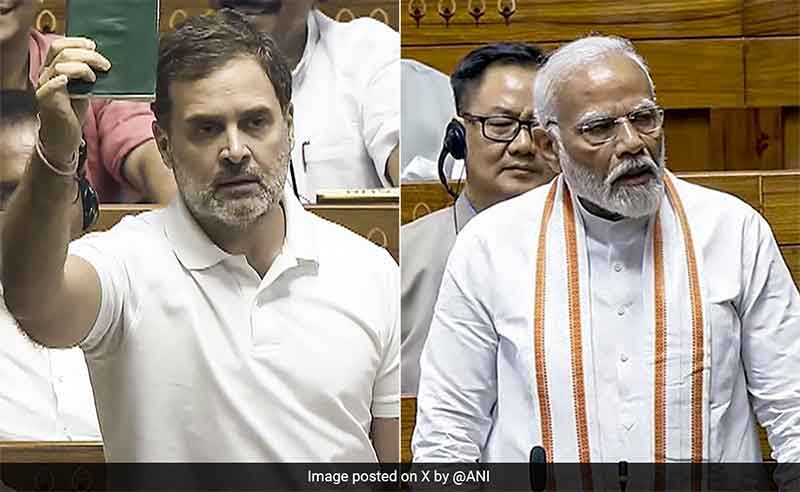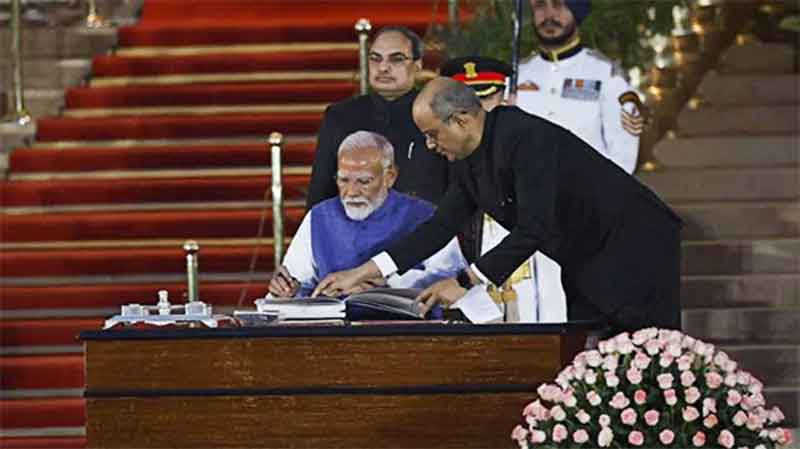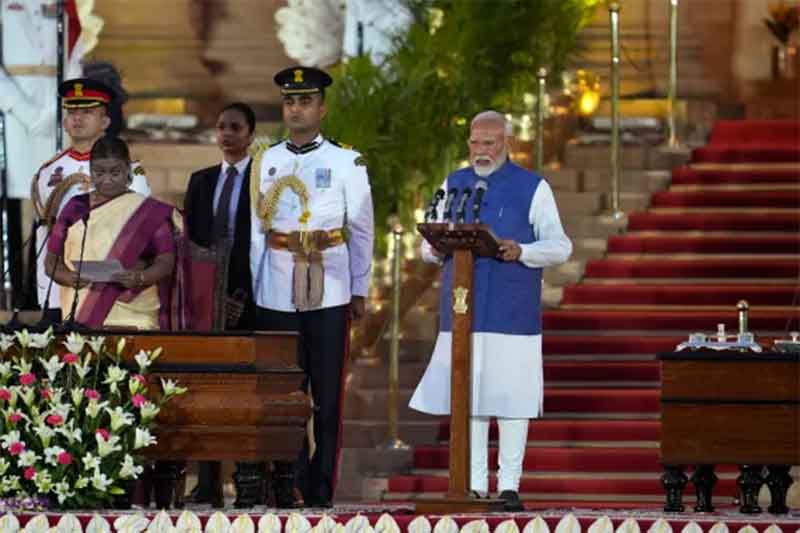
The first message I came across on WhatsApp that day was that of a Union Minister being unable to write on a white board in Hindi, the tagline of a popular government program, that she wanted to endorse at a school event.
Disappointing, I told myself. The fact that a Union Minister lacked in the fundamental ability to write in her native language, does not bode well for our nation, I argued. My mind was rapidly racing down the “where is this country headed?” line of thought. I resolved to share my perspective on social media later in the day, as soon as a suitable opportunity presented itself.
Chores all done for the morning; I sat down to browse through the numerous WhatsApp groups that I am part of. It is then that I came across a developing conversation in one of the groups on this topic that had already made it to the headlines of various news portals and was trending on X (Twitter) – “On camera: ‘12th pass’ Union Minister fails to write….” screamed one headline on a popular news website, the link of which had been shared in the group.
What struck me was one of the arguments by a member. She was defending this Minister and criticising the Opposition for making its criticism of the episode subjective, as she put it. A civil discussion, for and against the Minister and the Opposition, had been exchanged over a dozen chats. I stopped in my tracks and resisted the impulse to join in the debate, and instead decided to read through all the discussions, first. Clearly, the arguments in support of the Minister were, according to me, impressive, and I realized, was a perspective that had not even remotely crossed my mind!
According to her, the Opposition and its supporters slamming the Minister for not knowing Hindi was an instance of “defeating the democratic principles”. Also, she added, what if this Minister is a person with dysgraphia. (Dysgraphia is a neurological disorder that affects a person’s writing skills such as spelling and handwriting. The condition may be triggered by a brain injury occurring at birth or a significant traumatic event in an individual’s life.-from the web)
To draw an analogy, she gave the example of a fairly literate person who may not necessarily have the average writing speed as others. Then there are those who experience social communication challenges, or to read and/or perform arithmetic is a demanding task for them. All these, she said, are indicators of neurodivergence, which often go undetected for an entire lifetime in many individuals. Unaware of their condition, these people go through life while grappling with feelings of inadequacy and an inferiority complex.
By now I had gotten on a call with her to understand her viewpoint better. We were deliberating if we should evaluate her as a Minister based on her disability or her effectiveness in addressing issues like violence against women, in her role? What if she, realising what she has lost out on in her own childhood, pushes for policies in her capacity, that will usher in better and greater opportunities for girls to access quality education? Aren’t these the parameters on the basis of which we ought to gauge the effectiveness of our elected representatives?
To my mind, all her arguments seemed right. I had to now investigate what our constitutional body says about the eligibility criteria for Ministers.
As per Article 84 of the Indian Constitution, individuals are eligible to become members of Parliament if, they are citizens of India; fall under the age limit of 30 years in the case of Rajya Sabha and 25 years in the case of Lok Sabha; possess additional qualifications as per Parliamentary laws. However, there is NO EDUCATIONAL QUALIFICATION specified according to the constitutional body to become an MP or a Minister.
To resolve the internal debate in my mind about the fairness of having a person less qualified, and likely less informed than us, occupying a position of such importance as that of a Union Minister’s, I reached out to a Human Rights lawyer at the High Court of Karnataka for her perspective.
According to her, this discussion has been going on for a while now. She agrees that in the present day and time, we should push for legislation to have representatives with a certain level of education. The adoption of the earlier provisions coincided with a literacy rate of just 17% among Indians. While on the other hand, notwithstanding their limited literacy, erstwhile India had an abundance of people with noble intentions, committed to the welfare of the nation, ready to dedicate themselves in its service, in the newly founded independent India, where the sentiment of patriotism ran high. These were individuals with both deep wisdom and understanding of the situation prevailing in a freshly minted India of the time. Moreover, those in governance had the civil servants (IAS, IFS, IPS), who were very knowledgeable in administrative laws, to assist these representatives in discharging their duties efficiently.
With the passage of time, however, we have witnessed a shift where both sides of the literacy divide exhibit unabashed dishonest behaviour.
Subscribe to Our Newsletter
Get the latest CounterCurrents updates delivered straight to your inbox.
Today, when international politics affects domestic policies and vice versa, well educated, qualified, and literate representatives are a prerequisite for a nation standing on the threshold of becoming an economic superpower and a leader in geopolitics.
On the flip side though, is the predicament that comes with insistence on a certain level of qualification for jobs in the top echelons of power. With this move, we once again shut out women, Dalits, tribals and others from marginalised communities, who have for decades been denied basic rights, including access to education.
I am back to where I started. Where is this country headed?
Seroja Manoj is a Skill Development Trainer who is currently pursuing a course in Public Policy. She is a dedicated and engaged member of various civil society organizations. She closely monitors ongoing socio-political events and actively works to raise awareness, with the aim of driving positive societal transformation.













































